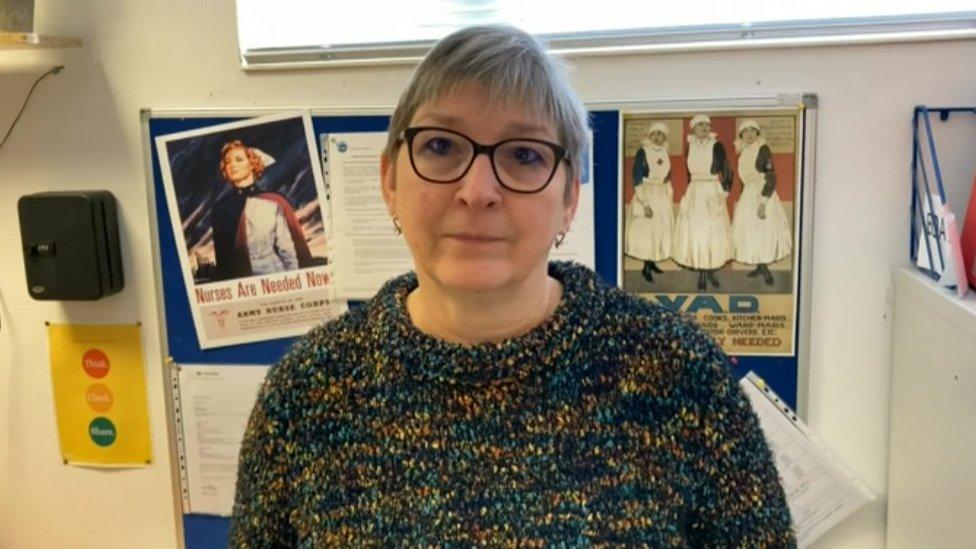Care workers say industry 'desperate' for help
- Published
Wiltshire carers open up about their workload
Care workers in Wiltshire say their industry is "desperate" for more help, if they are to cope with looking after the ageing population.
The government is already making some changes, including allowing larger council tax rises, to help fund the system.
But with growing workloads and staff vacancies, Wiltshire's providers are warning the pressure is unsustainable.
Some are having to cut their care hours because of demands.
"I've never been so scared for the sector," said Stephen Trowbridge, the boss of First City Nursing and Care in Swindon, who has seen several staff leave to live in cheaper areas or take better paid jobs.
After the government's changes announced in the autumn statement, Stephen told BBC Radio Wiltshire: "I don't think I've ever been so scared for people who receive social care and people who need to go into hospital, because we won't be able to get people out of hospital as we haven't got the staff."
Another Wiltshire provider, Abicare, is doing all it can to promote how rewarding their sector can be to work in, but "it's a tough world out there at the moment" said manager Angela Dawson.
"We've got huge numbers of vacancies and what we have to do in order to manage that is reduce the number of hours of care that we do," she said.
Her team in Bradford-on-Avon, Swindon and Salisbury are trying to show a different face to their profession, which they say has suffered from an unfair image in the press and politics in recent years.
LISTEN: A day in the life of care workers, on BBC Radio Wiltshire
"It's just a joy to do," said senior carer Kate Ball, who describes this as "the only job I've ever done that you want to get up for".
She calls her profession the "hidden army" because they feel so ignored, recalling the national clapping on the doorstep during the first Covid-19 lockdown.
"It lasted that short period of time, then suddenly we were erased and obliterated from people's minds," said Kate. "Nobody notices us until they need us and that's the truth."
She said caring provides hugely flexible hours, good career progression, and training - but even at recruitment fairs, few appear interested.

Care manager Angela Dawson says shortages aren't all about funding, caring also needs to be better promoted as a career
She said successive governments shoulder the blame for failing to properly plan for our ageing population, as do councils for failing to pay rates which truly cover costs.
One of Kate's clients, 86-year-old Mike Harman in Bradford-on-Avon, said Kate's "become a big part of my family" over recent years.
"It got very difficult once I started to find limits, I've needed the services of a carer very much indeed," he said.
"As you get older you lose a lot of your friends, so this caring business is so important, they're an extension of your family in many ways."
Following concern over challenges including staffing and financial pressures, the government said an extra £2.8bn would be available for adult social care next year and £4.7bn the following year.
This includes delaying the cap on social care costs, allowing councils to increase council tax by up to 5% and £1bn of extra funding next year, followed by £1.7bn the next year.
Health Secretary Stephen Barclay said 200,000 more care packages would be delivered with this funding.

Follow BBC West on Facebook, external, Twitter, external and Instagram, external. Send your story ideas to: bristol@bbc.co.uk , external